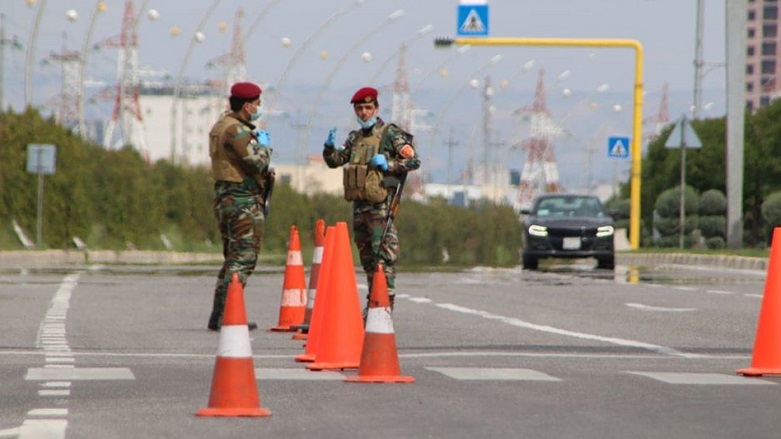Kurdistan cabinet holds virtual session on COVID-19, economy, reform
Prime Minister of the Kurdistan Region Masrour Barzani chaired a video conferenced cabinet meeting on Wednesday to discuss economic repercussions of both drop in oil prices and the coronavirus pandemic, as well as pushing forward with the regional government's reform agenda that had been the centerpiece of the administration before the current worldwide health crisis took priority.

ERBIL (Kurdistan 24) - Prime Minister of the Kurdistan Region Masrour Barzani chaired a video conferenced cabinet meeting on Wednesday to discuss economic repercussions of both drop in oil prices and the coronavirus pandemic, as well as pushing forward with the regional government's reform agenda that had been the centerpiece of the administration before the current worldwide health crisis pushed other issues aside.
According to a statement by the KRG’s press office, Barzani told his cabinet that, despite the dramatic recent fall in revenue, the Kurdistan Regional Government (KRG) would do all it can to ensure its people are affected as little as possible, adding that the government's current priorities are public health, food availability, and continuing to pay salaries of public servants, which make up a large percentage of the population.
Underlining the government’s objectives for economic diversification in all sectors, notably a significant boost to agricultural capacity that is necessary to achieve food independence, is at the heart of his cabinet’s agenda. Toward this end, he expressed his full support for the ambitious longterm plans of the Ministry of Agriculture and Water Resources.
Ministers “decided unanimously that their main priority is keeping civil servants' pay unchanged, while members of the cabinet agreed to offer half of their wages and bonuses for the next two months to the government treasury for redistribution to low-income families,” the statement added.
They also reviewed and approved a draft proposal for implementing the KRG's 2020 reform agenda, that would guarantee the salaries of public employees. Concerned residents of the region have been expressing fears on Kurdish social media of a possible reduction in pay for government employees.
The senior Kurdish official tasked a legal committee with finding a mechanism to alleviate the financial burdens on daily wage earners and tenants who have been affected by the ongoing lockdown to curb the spread of the coronavirus, officially known as COVID-19.
Read More: Kurdistan extends regionwide coronavirus curfew until April 10
The cabinet also approved a motion by the Minister of Finance and Economy, Awat Janab Noori, to reduce non-essential public and ministerial expenses in order to maintain the civil servant payroll.
The Ministers of Education and Higher Education and Scientific Research presented a report “on the state of schools and learning centers across the region, and the cabinet supported a plan for the consolidation of the school year through online courses” to compensate for the restrictions on public gatherings, including schools and universities.
Minister of Health Saman Hussein Muhammad then updated cabinet members on the fight against the coronavirus. The cabinet backed an initiative that would allow his ministry to acquire all medical equipment and medicines in direct coordination with governors and district administration heads.
Barzani applauded the KRG's health and law enforcement agencies for their efforts to keep members of the public safe and reiterated his call to the general public and government officials alike to continue complying with current pandemic-related regulations and recommendations.
According to the latest update by the KRG Ministry of Health, there are 188 confirmed cases of the deadly virus in areas under its jurisdiction, including two deaths and 61 patients who have recovered.
Worldwide, the coronavirus has infected over 932,000 people and killed nearly 47,000, according to government-reported data compiled by Johns Hopkins University.
The actual figures could be dramatically higher due to insufficient testing capabilities or underreporting.
Editing by John J. Catherine
